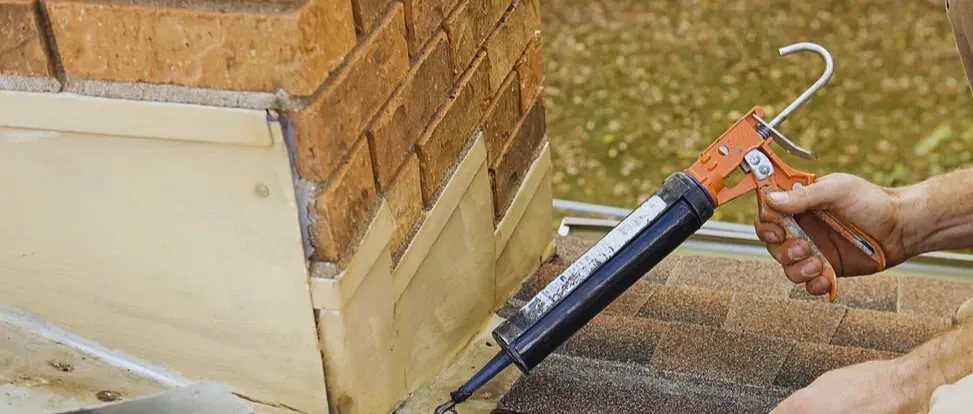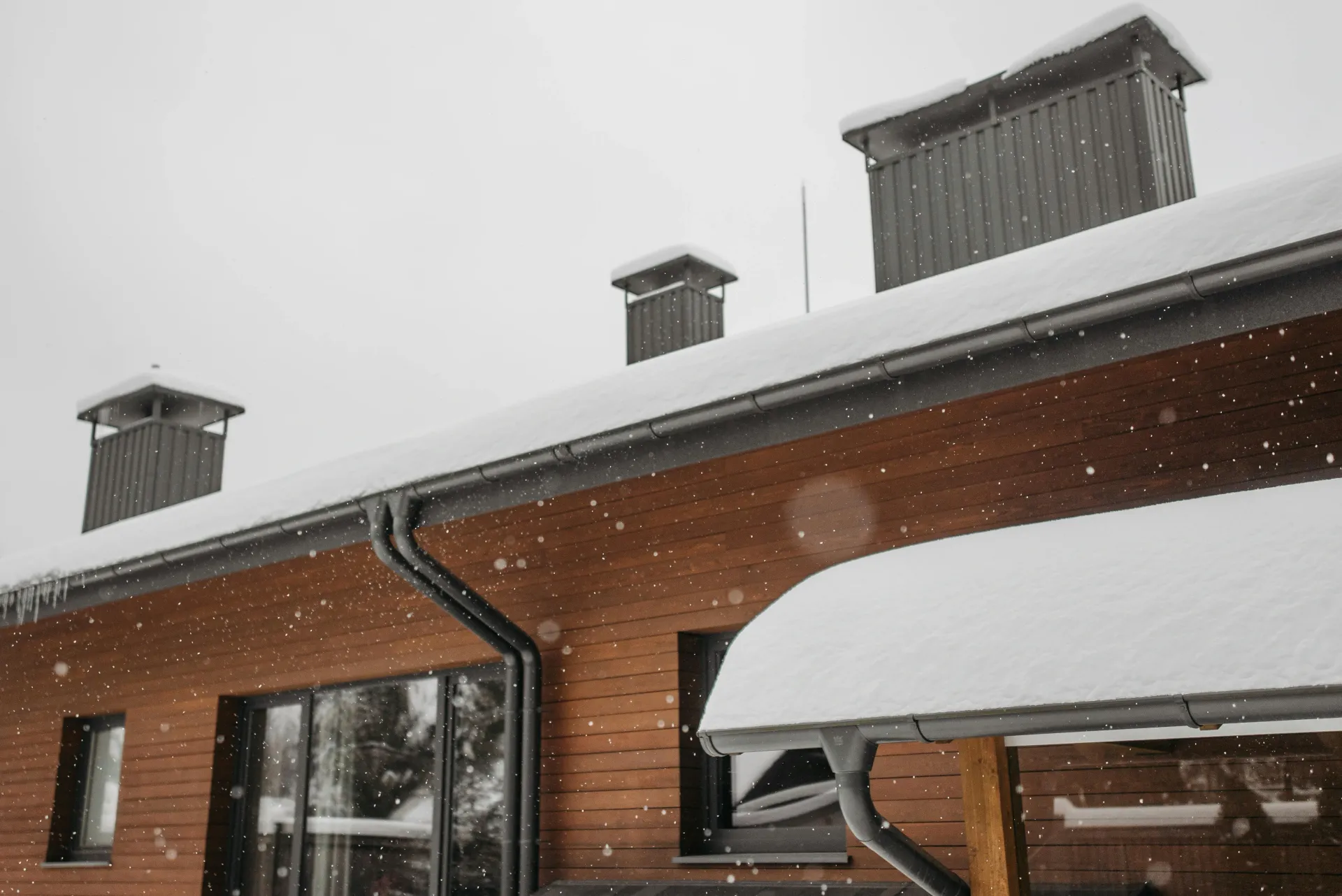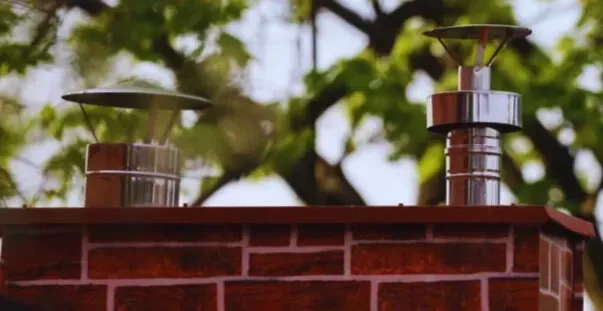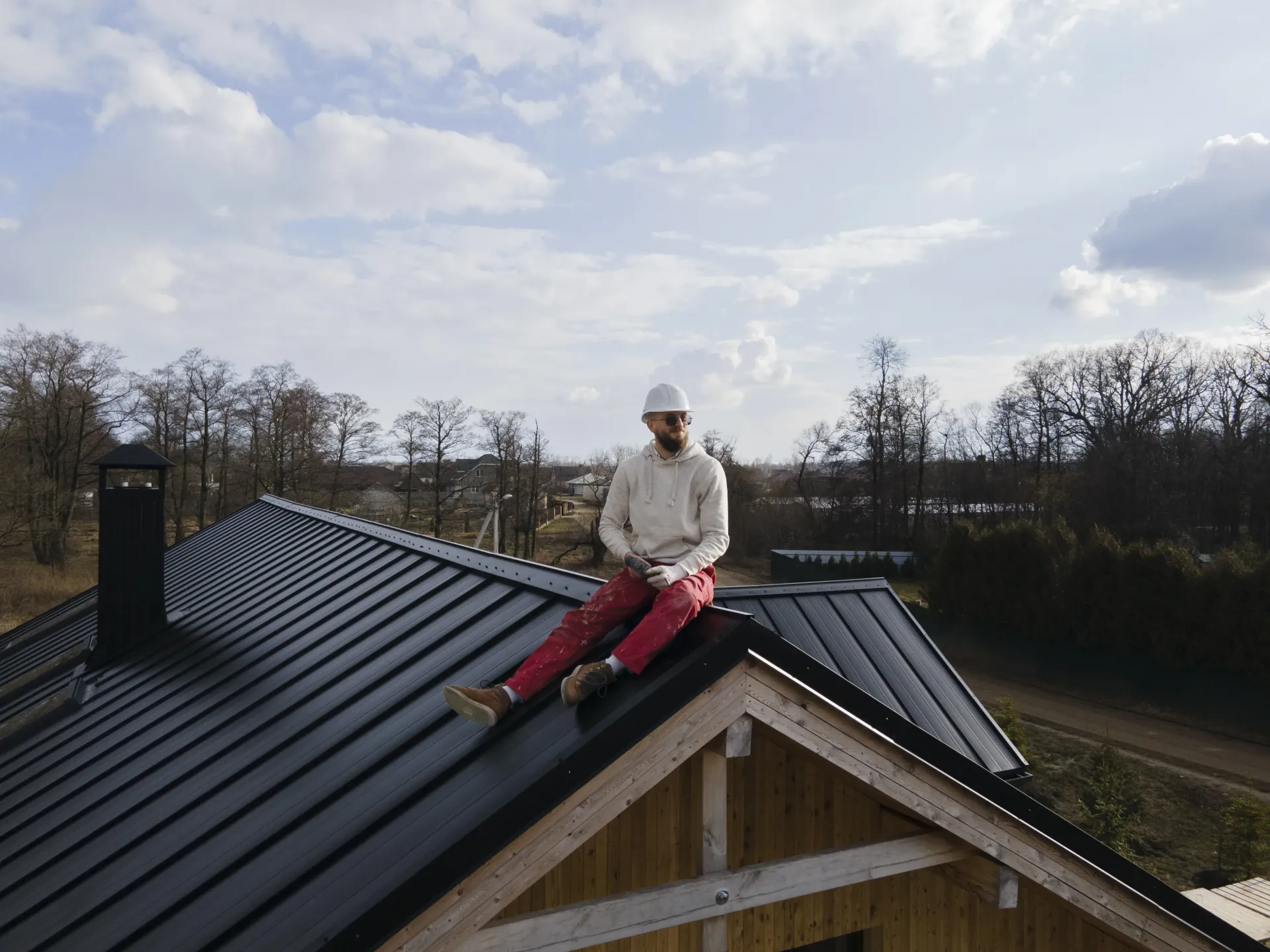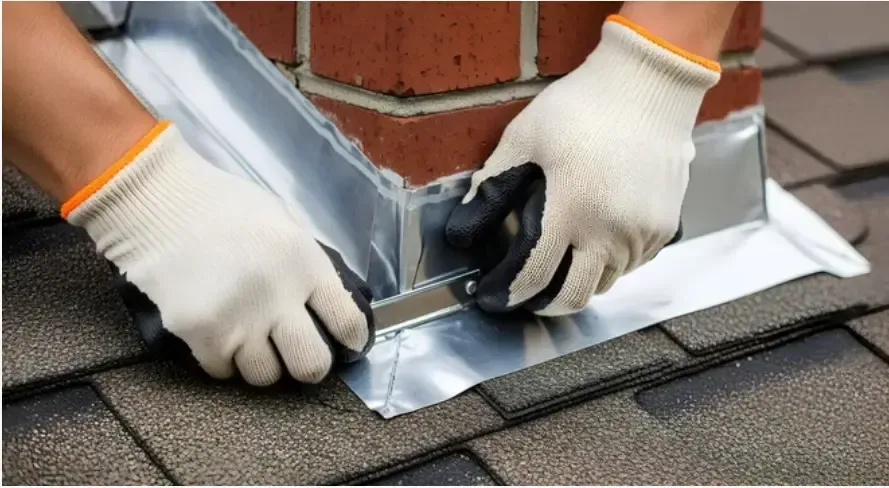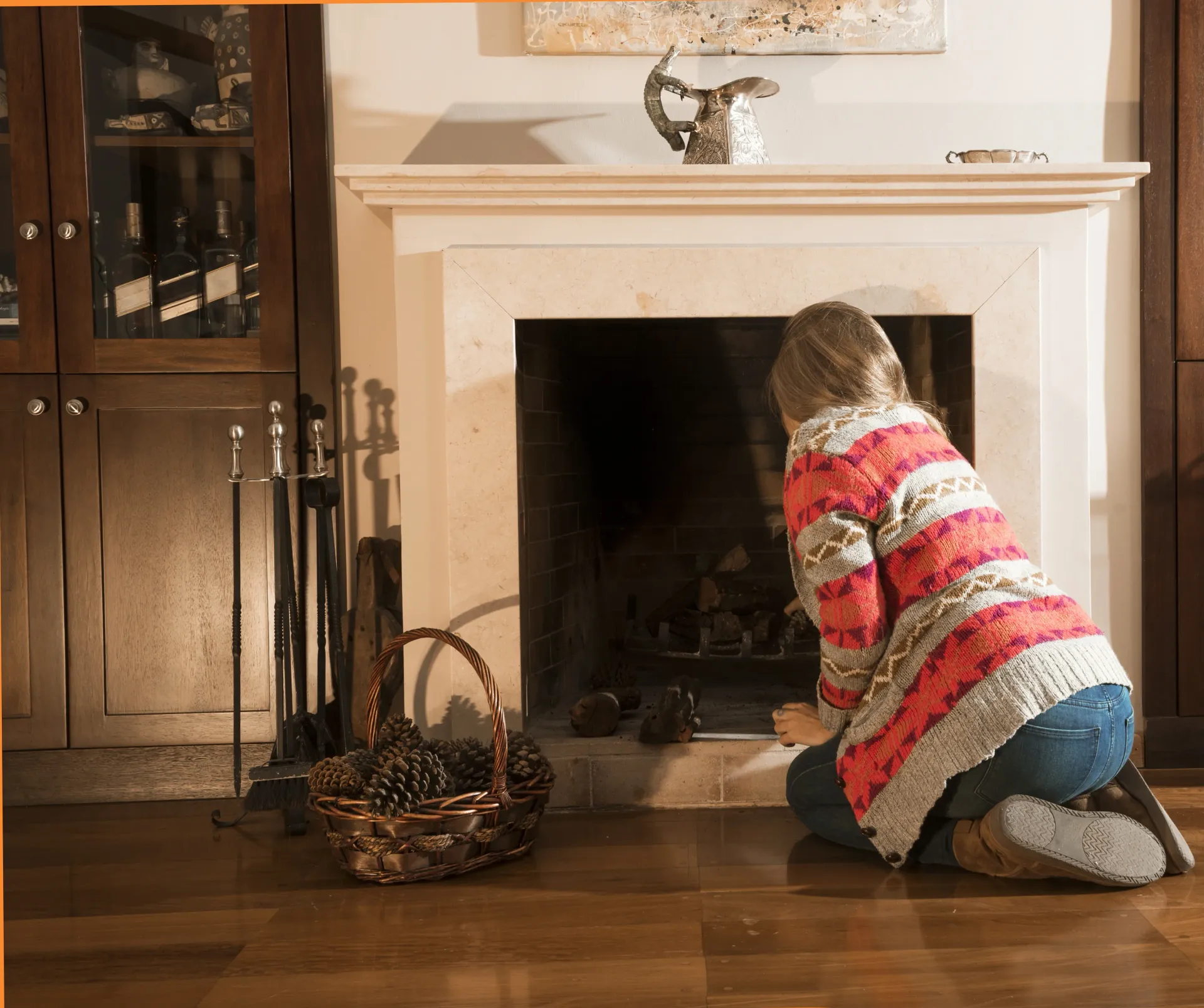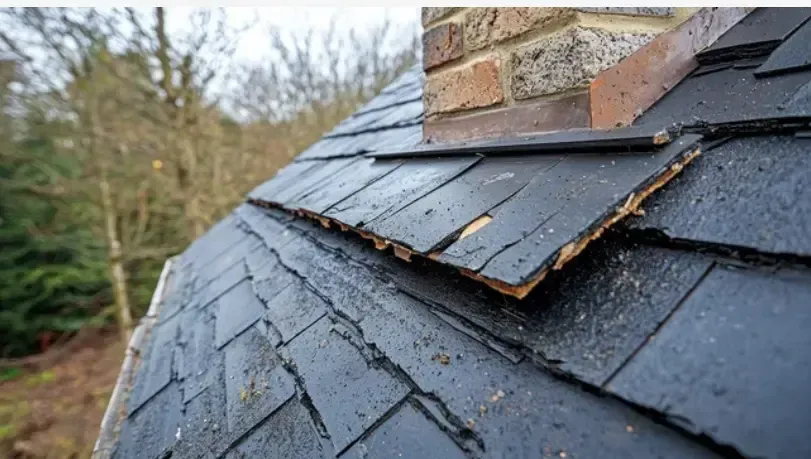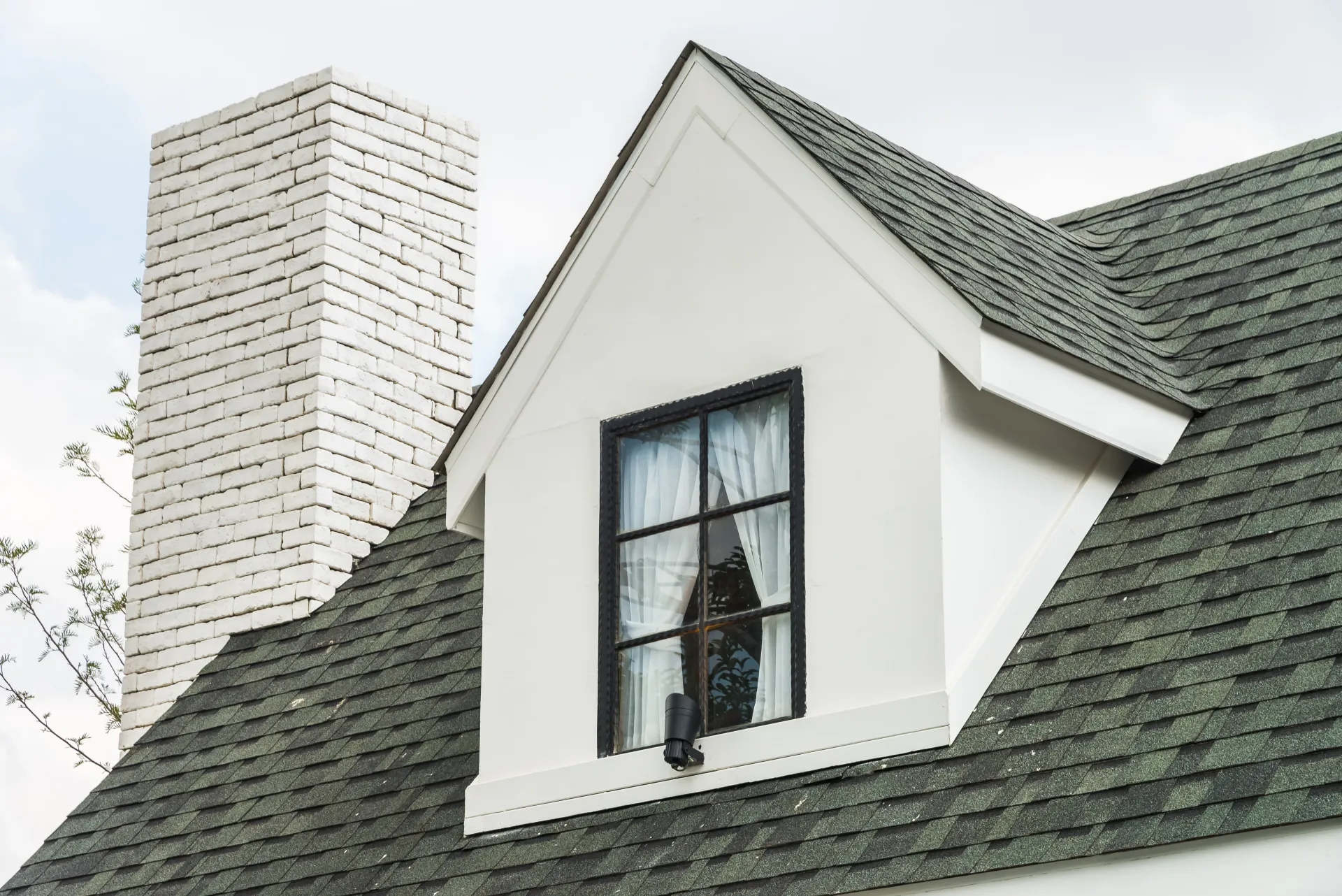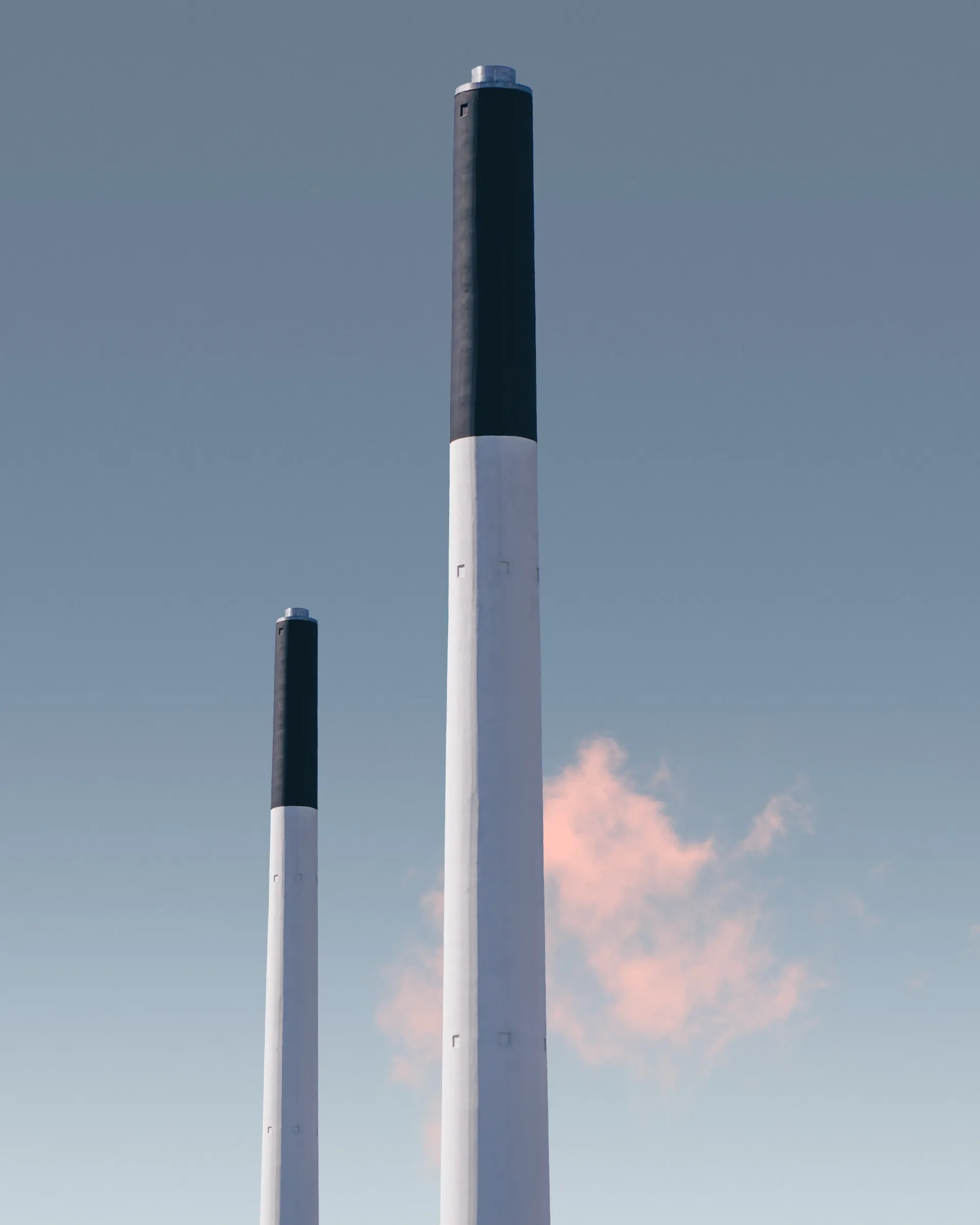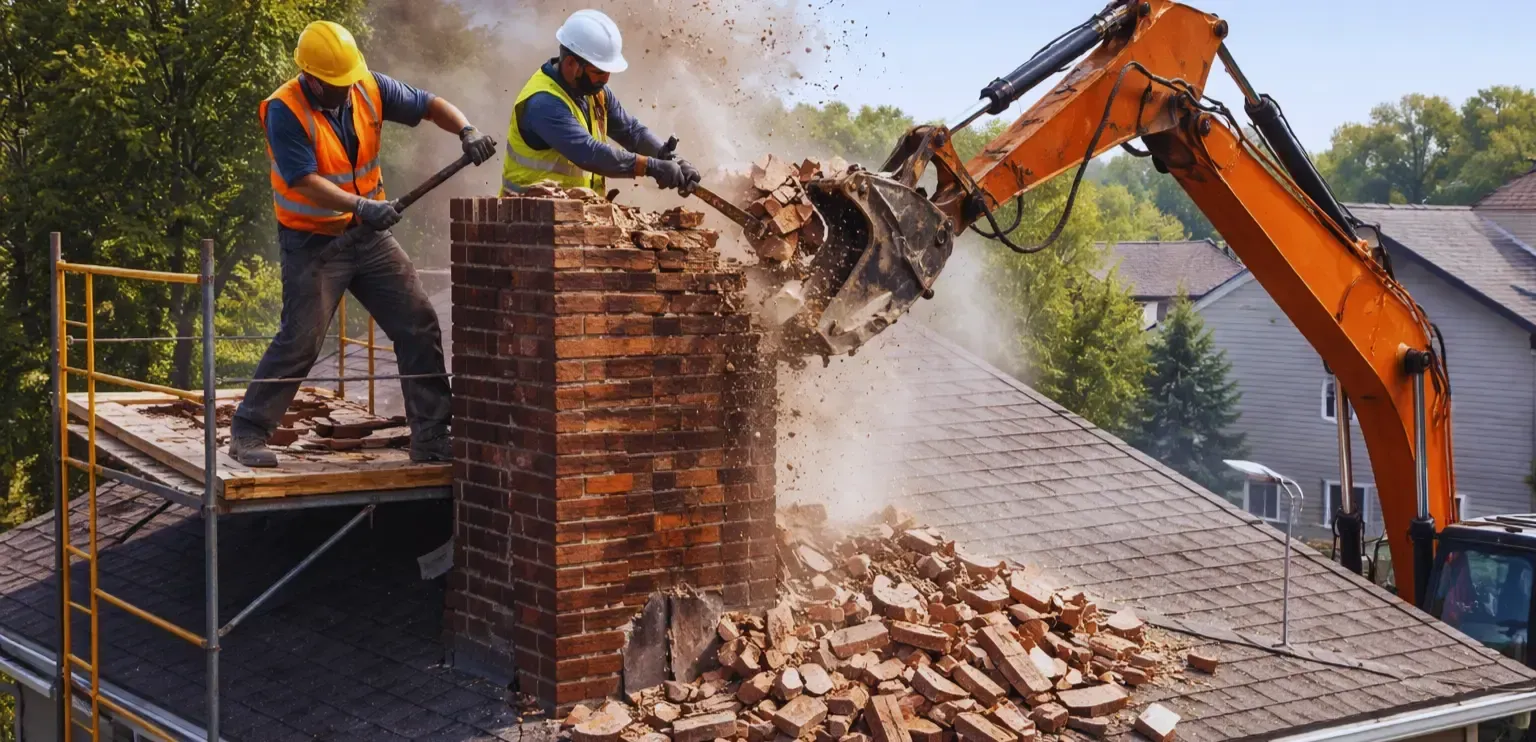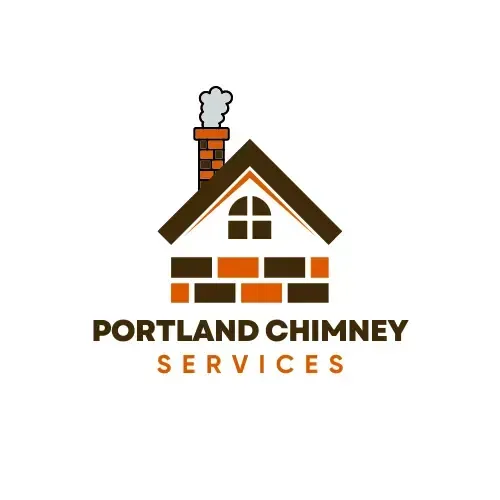Understanding how to prepare your chimney for Portland's harsh winter conditions protects your home from water damage and ensures safe efficient heating. Maine's wet cold weather creates unique challenges requiring proactive maintenance and weatherproofing.

Understanding Portland's Weather Challenges
Portland's climate poses specific threats to chimney systems. Recognizing these environmental factors helps homeowners prioritize appropriate protection measures.
Heavy Precipitation: Portland receives 45+ inches of annual precipitation including rain, snow, and sleet that can penetrate chimney structures causing water damage.
Freeze Thaw Cycles: Temperature fluctuations above and below freezing cause water trapped in masonry to expand and contract, cracking bricks and deteriorating mortar.
Ocean Proximity: Salt air from Casco Bay accelerates corrosion of metal chimney components including caps, flashing, and dampers.
Long Heating Season: Extended winters from October through April mean chimneys work hard for six months requiring excellent condition to maintain safety and efficiency.
Ice Dam Formation: Heavy snow and temperature variations create ice dams that force water under flashing and into chimney structures.
Wind Driven Rain: Coastal storms drive precipitation horizontally into unprotected chimney openings causing interior water infiltration and damage.
Professional Chimney Inspection Before Winter
Comprehensive inspection identifies problems before cold weather arrives. Early detection prevents emergency repairs during peak heating season.
Exterior Assessment: Inspectors examine masonry condition, mortar joints, chimney crown, and overall structural integrity identifying cracks, spalling, or deterioration.
Interior Evaluation: Certified sweeps inspect flue liners, smoke chambers, and fireboxes checking for creosote buildup, damage, or blockages affecting performance.
Flashing Inspection: Critical examination of flashing where chimney meets roof identifies gaps, rust, or separation that allows water penetration.
Cap and Crown Review: Inspection verifies chimney caps remain secure and functional while crowns show no cracks allowing water infiltration.
Damper Testing: Checking damper operation ensures proper sealing when fireplace isn't in use preventing heat loss and preventing downdrafts.
Written Documentation: Professional inspections provide detailed reports documenting current condition and recommending necessary repairs or improvements.
Essential Chimney Cleaning and Maintenance
Thorough cleaning removes hazardous creosote and prepares chimneys for heavy winter use. Annual maintenance prevents chimney fires and ensures optimal performance.
Creosote Removal: Professional sweeping eliminates flammable creosote deposits that accumulate from burning wood, reducing fire risk throughout heating season.
Debris Extraction: Removing leaves, animal nests, bird debris, and other blockages ensures proper draft and prevents dangerous smoke backup into homes.
Soot Elimination: Cleaning away soot buildup improves efficiency, reduces odors, and allows thorough inspection of underlying chimney structures.
Smoke Chamber Cleaning: Addressing the often-overlooked smoke chamber removes deposits in this critical transition area between firebox and flue.
Damper Cleaning: Removing built-up deposits ensures dampers operate smoothly and seal properly when closed preventing energy waste.
Ash Removal: Clearing firebox ash before heating season begins provides clean starting point and allows inspection of firebox condition.
Waterproofing Your Chimney System
Protecting chimneys from Portland's moisture prevents expensive water damage. Strategic waterproofing extends chimney life and maintains structural integrity.
Masonry Sealing: Applying breathable water repellent sealers to brick and stone prevents moisture absorption while allowing trapped moisture to escape. Professional chimney waterproofing services ensure proper application and long-lasting protection.
Crown Repair: Fixing cracks in chimney crowns with specialized sealants or rebuilding damaged crowns prevents water from entering masonry structure.
Flashing Replacement: Installing new step flashing and counter flashing where necessary creates waterproof barriers between chimney and roofing materials.
Cap Installation: Quality chimney caps with built-in spark arrestors keep rain, snow, and animals out while allowing smoke to escape freely.
Caulking Joints: Sealing gaps around flashing, caps, and other penetrations with appropriate high-temperature caulks prevents water infiltration.
Chimney Cricket Installation: Adding crickets (small ridged structures) behind chimneys diverts water around rather than allowing accumulation causing leaks.
Chimney Cap and Crown Protection
Caps and crowns form your chimney's first line of defense against weather. Proper installation and maintenance prevent most water-related problems.
Cap Selection: Choose stainless steel or copper caps with mesh screening that resists rust, blocks animals, and handles Maine's harsh weather.
Proper Sizing: Correctly sized caps cover entire flue openings without restricting draft while extending beyond crown edges for maximum protection.
Secure Mounting: Professional installation ensures caps remain firmly attached withstanding high winds common in coastal Portland areas.
Crown Condition: Maintaining smooth sloped crown surfaces directs water away from flue openings and chimney edges preventing infiltration.
Crown Coating: Applying elastomeric crown coatings fills hairline cracks and creates flexible waterproof barriers that move with temperature changes.
Regular Inspection: Annual cap and crown checks identify developing problems before they require expensive repairs or cause interior water damage.
Flashing Inspection and Repair
Flashing creates critical watertight seals where chimneys penetrate roofs. Proper flashing prevents most chimney leaks affecting Portland homes.
Step Flashing Check: Inspecting individual step flashing pieces woven with shingles identifies rust, gaps, or improper installation allowing water entry.
Counter Flashing Assessment: Verifying counter flashing remains properly embedded in mortar joints and covers step flashing prevents water infiltration.
Sealant Condition: Checking caulks and sealants around flashing identifies dried, cracked, or missing materials requiring replacement.
Rust Evaluation: Identifying rust on galvanized flashing indicates replacement needs as rust accelerates in salt air environments near ocean.
Professional Repair: Proper flashing repair requires roofing expertise and correct materials ensuring long-lasting waterproof installations.
Ice Dam Protection: Installing ice and water shield membranes under flashing provides additional protection against ice dam-driven water intrusion.
Addressing Masonry Damage
Portland's freeze-thaw cycles cause progressive masonry deterioration. Repairing damage prevents structural failure and water infiltration.
Tuckpointing: Removing deteriorated mortar and replacing with fresh mortar restores structural integrity and prevents water penetration between bricks.
Brick Replacement: Removing and replacing spalled or cracked bricks maintains chimney strength and appearance preventing progressive failure.
Parging Application: Applying mortar coating to damaged chimney interiors creates smooth protective surfaces improving draft and preventing further deterioration.
Structural Stabilization: Addressing leaning, separating, or structurally compromised chimneys prevents collapse and ensures safe operation.
Efflorescence Treatment: Cleaning white salt deposits (efflorescence) and addressing underlying moisture problems prevents ongoing masonry damage.
Preventive Maintenance: Regular minor repairs cost far less than deferred maintenance leading to major structural problems requiring extensive rebuilding.
Damper and Draft Optimization
Properly functioning dampers and good draft ensure efficient heating and prevent energy waste. Optimization improves comfort and reduces heating costs.
Damper Repair: Fixing rusted, warped, or poorly sealing dampers prevents heat loss when fireplaces aren't in use saving substantial energy costs.
Top Sealing Damper Installation: Upgrading to top mounted dampers provides superior sealing, eliminates downdrafts, and includes built in caps combining two functions.
Draft Testing: Professional assessment of chimney draft identifies inadequate draw requiring height extensions or other modifications.
Chimney Height Adjustment: Extending short chimneys improves draft performance particularly important for homes in Portland's hilly terrain.
Cap Design Consideration: Using caps with draft improving designs enhances airflow while maintaining weather protection and animal exclusion.
Smoke Chamber Optimization: Modifying improperly designed smoke chambers improves draft and reduces smoke spillage into living spaces.
Preparation Timeline and Checklist
Systematic preparation ensures comprehensive chimney readiness. Following organized timelines prevents rushed last-minute service scheduling.
Step 1 (Late Summer August): Schedule professional chimney inspection and cleaning before peak autumn demand increases wait times.
Step 2 (Early Fall September): Complete identified repairs including tuckpointing, flashing work, and masonry repairs before cold weather.
Step 3 (Mid Fall October): Apply waterproofing treatments during dry weather allowing proper curing before winter precipitation begins.
Step 4 (Late Fall November): Perform final pre winter checks including cap security, damper operation, and firebox cleanliness.
Step 5 (Throughout Winter): Monitor chimney performance watching for leaks, draft problems, or other issues requiring immediate attention.
Step 6 (Early Spring April): Schedule post season inspection documenting any winter damage and planning repairs before next heating season.
Weather-Specific Protection Strategies
Portland's unique climate requires targeted approaches. Understanding specific weather threats enables appropriate protective measures.
| Weather Threat | Protection Strategy | Implementation Timing |
|---|---|---|
| Heavy Rain | Waterproofing, flashing repair, cap installation | Late summer/early fall |
| Snow Accumulation | Chimney cricket, proper height, secure caps | Before first snowfall |
| Ice Dams | Adequate insulation, proper flashing, ventilation | Summer/fall preparation |
| Freeze-Thaw | Masonry sealing, tuckpointing, crown repair | Dry fall weather |
| Salt Air Corrosion | Stainless steel components, regular inspection | Ongoing maintenance |
Creosote Management for Safe Heating
Proper creosote control prevents chimney fires. Understanding formation and removal maintains safety throughout Portland's long heating season.
Burning Practices: Using properly seasoned hardwood, maintaining hot fires, and avoiding smoldering fires minimizes creosote formation.
Regular Cleaning: Annual professional sweeping removes accumulated creosote before reaching dangerous levels that could ignite.
Moisture Control: Keeping firewood dry (below 20% moisture content) reduces creosote production during combustion significantly.
Air Supply: Ensuring adequate combustion air prevents incomplete burning that produces excessive creosote deposits in chimneys.
Fire Temperature: Maintaining consistently hot fires burns more completely producing less creosote than cool smoldering fires.
Stage Recognition: Understanding three creosote stages (flaky, tarlike, glazed) helps homeowners recognize when professional cleaning becomes urgent.
Energy Efficiency Improvements
Optimized chimneys reduce heating costs while improving comfort. Strategic improvements pay for themselves through energy savings.
Damper Sealing: Properly functioning dampers prevent heated air escape when fireplaces aren't in use potentially saving hundreds annually.
Glass Door Installation: Fireplace glass doors with adjustable air controls improve efficiency while preventing room air from escaping up chimneys.
Chimney Balloon Use: Inflatable chimney balloons seal unused chimneys preventing drafts and heat loss in homes with multiple fireplaces.
Insulation Enhancement: Adequate attic insulation around chimney structures prevents heat loss while maintaining proper clearances from combustible materials.
Draft Optimization: Balanced draft provides adequate combustion air without excessive heat loss improving overall heating system efficiency.
Regular Maintenance: Clean chimneys with good draft operate more efficiently requiring less fuel to produce same heat output.
Signs Your Chimney Needs Immediate Attention
Recognizing warning signs prevents emergencies. Understanding symptoms helps homeowners know when to call professionals immediately.
Water Stains: Interior stains on ceilings or walls near chimneys indicate active leaks requiring immediate investigation and repair.
Musty Odors: Persistent damp smells from fireplaces suggest moisture problems or blockages that could cause dangerous smoke backup.
Spalling Bricks: Brick faces flaking or popping off indicate freeze-thaw damage requiring prompt repair preventing progressive structural failure.
White Staining: Efflorescence on exterior masonry signals water infiltration problems needing waterproofing and repair attention.
Tilting or Leaning: Visible chimney movement indicates serious structural problems requiring immediate professional evaluation and stabilization.
Smoke Entering Home: Smoke backing into living spaces during fires signals dangerous draft problems or blockages requiring urgent professional attention.
DIY Maintenance vs. Professional Services
Understanding appropriate DIY tasks versus professional requirements protects safety and ensures quality results.
Homeowner Tasks: Basic ash removal, exterior visual inspections, monitoring performance, and maintaining clear surroundings around chimneys.
Professional Requirements: Sweeping, interior inspections, repairs, waterproofing applications, and any work requiring climbing on roofs or working at heights.
Safety Considerations: Chimney work involves heights, specialized equipment, technical knowledge, and safety risks making professional service strongly recommended.
Insurance Implications: DIY repairs or damage may affect homeowner insurance coverage while professional services include liability protection.
Quality Assurance: Certified chimney professionals ensure work meets safety standards and building codes providing peace of mind and proper documentation.
Long Term Value: Professional maintenance extends chimney life and prevents expensive emergency repairs that often result from deferred or improper care.
Working with Certified Chimney Professionals
Selecting qualified service providers ensures quality work and safety. Understanding credentials helps homeowners choose appropriate contractors.
CSIA Certification: Chimney Safety Institute of America certification demonstrates comprehensive training and competency in chimney inspection and maintenance.
Insurance Verification: Confirming liability insurance and workers compensation protects homeowners from financial responsibility for accidents during service.
Local Experience: Portland area professionals understand regional weather challenges, building styles, and specific problems common to Maine chimneys.
Written Estimates: Reputable companies provide detailed written quotes specifying work scope, materials, and costs before beginning projects.
Warranty Coverage: Quality professionals stand behind their work with warranties on labor and materials providing long-term protection.
References and Reviews: Checking online reviews and requesting references helps verify service quality and customer satisfaction with previous work.
Cost Considerations and Budgeting
Understanding typical costs helps homeowners budget appropriately for chimney maintenance. Investment in preparation prevents expensive emergency repairs.
Annual Cleaning: Professional chimney sweeping typically costs $150-300 depending on chimney height, condition, and accessibility.
Inspection Fees: Comprehensive Level 2 inspections range $200-500 including detailed documentation of condition and recommended repairs.
Waterproofing: Masonry sealing applications cost $300-800 depending on chimney size and number of coats required for adequate protection.
Minor Repairs: Tuckpointing, minor flashing work, or damper replacement typically range $300-1,000 depending on extent and accessibility.
Major Repairs: Significant masonry rebuilding, complete flashing replacement, or structural repairs may cost $1,500-5,000+ depending on damage extent.
Prevention Value: Regular maintenance costing $300-500 annually prevents major repairs costing thousands while ensuring safe reliable operation throughout winters.
Common Portland Chimney Problems
Understanding frequent issues helps homeowners recognize problems early. Regional awareness prevents expensive damage from delayed attention.
Salt Air Corrosion: Coastal proximity accelerates metal component deterioration requiring more frequent cap and damper replacement than inland locations.
Freeze Thaw Damage: Temperature cycling causes progressive masonry damage requiring vigilant maintenance and prompt repair of developing cracks.
Ice Dam Infiltration: Roof ice dams force water under flashing and into chimney structures causing interior damage during severe winters.
Crown Deterioration: Portland's precipitation accelerates crown breakdown requiring regular inspection and maintenance preventing major structural water damage.
Animal Intrusion: Wildlife seeking warm shelter nest in chimneys during shoulder seasons requiring caps and screens for prevention.
Historic Home Challenges: Portland's many older homes have chimneys lacking modern liners or featuring deteriorated masonry requiring specialized attention.
Expert Tips and Local Insights
In Portland, successful chimney preparation requires understanding how Maine's harsh weather affects masonry structures. Local expertise ensures homes stay warm and leak-free throughout long winters.
"Preparing chimneys for Portland winters isn't optional it's essential," explains a certified chimney professional. "Our combination of heavy precipitation, freeze-thaw cycles, and salt air creates perfect conditions for chimney deterioration. Homeowners who invest in annual inspection, proper cleaning, and proactive waterproofing avoid emergency repairs during January cold snaps. The key is treating your chimney like any other critical home system requiring regular maintenance rather than waiting until problems force attention. A few hundred dollars in preventive care saves thousands in emergency repairs and protects your family's safety and comfort."
Whether you live in the West End, East End, Deering, or anywhere throughout Greater Portland, proper chimney preparation protects your investment and ensures reliable safe heating through Maine's demanding winter months. Learn more about professional chimney services in your area.
Emergency Preparedness
Despite best preparations, emergencies occur. Understanding appropriate responses protects safety and minimizes damage.
Chimney Fires: If you suspect chimney fire (roaring sound, dense smoke, intense heat), evacuate immediately, call 911, and never use water on chimney fires.
Leak Discovery: Upon discovering leaks, place containers catching drips, document damage for insurance, and call emergency chimney services immediately.
Structural Concerns: If chimney shows tilting, separation, or collapse risk, keep family away, notify authorities if threatening, and call structural professionals.
Carbon Monoxide: CO detector alarms require immediate evacuation, calling emergency services from outside, and never reentering until cleared by professionals.
Storm Damage: After severe weather, inspect chimneys from ground level for visible damage and schedule professional inspection before next fire.
Service Availability: Identify 24-hour emergency chimney services before problems occur ensuring rapid response when urgent situations develop.
Long-Term Maintenance Planning
Strategic long-term planning extends chimney life and prevents major expenses. Understanding maintenance cycles helps homeowners budget and schedule appropriately.
Annual Priorities: Every year schedule professional cleaning and Level 1 inspection ensuring basic safety and operational readiness.
Three-Year Cycle: Every three years complete comprehensive Level 2 inspection with camera documentation evaluating chimney interior condition thoroughly.
Five-Year Planning: Plan for masonry resealing, potential damper replacement, and other intermediate maintenance items that wear with regular use.
Major Investment Timeline: Budget for significant repairs or rebuilding typically needed every 15-30 years depending on construction quality and maintenance history.
Documentation Maintenance: Keep all inspection reports, receipts, and maintenance records documenting care and facilitating insurance claims or home sales.
Proactive Approach: Addressing small problems immediately prevents progressive deterioration that multiplies repair costs and complicates solutions.
Conclusion
Understanding how to prepare your chimney for Portland, ME's wet and cold weather ensures safe efficient heating and protects your home from expensive water damage. Through professional inspection, thorough cleaning, strategic waterproofing, and timely repairs, homeowners maintain reliable chimney systems that withstand Maine's demanding climate.
If you suspect your chimney needs preparation for Portland's challenging weather or want to schedule professional inspection and maintenance, contact certified chimney professionals today. Proper preparation protects your family's safety, preserves your home investment, and ensures warm comfortable winters ahead.
Key Takeaways
- Portland's heavy precipitation, freeze thaw cycles, and salt air create unique chimney challenges requiring proactive preparation
- Annual professional inspection and cleaning form foundation of proper chimney maintenance and safety
- Waterproofing through sealing, flashing repair, and quality caps prevents most water-related chimney damage
- Addressing masonry damage promptly prevents progressive deterioration requiring extensive expensive rebuilding
- Late summer and early fall provide optimal timing for chimney preparation before heating season begins
- Professional certified chimney services ensure safety, quality, and proper solutions to Portland's climate challenges.
Frequently Asked Questions
When should I have my chimney inspected in Portland?
Schedule annual chimney inspection and cleaning in late summer (August-September) before heating season begins. This timing provides adequate time for identified repairs before cold weather while avoiding peak autumn demand when appointments become difficult to schedule.
How can I tell if my chimney is leaking?
Common leak signs include water stains on ceilings or walls near the chimney, musty odors from the fireplace, white staining (efflorescence) on exterior masonry, rust on dampers or fireplace components, and deteriorating interior walls adjacent to chimney structures.
Do I need to waterproof my brick chimney?
Yes, waterproofing brick chimneys in Portland is highly recommended. Breathable water repellent sealers prevent moisture absorption that leads to freeze-thaw damage while allowing trapped moisture to escape. Reapply waterproofing every 3-5 years depending on product and exposure.
How much does chimney preparation cost in Portland?
Basic annual cleaning and inspection typically costs $150-300. Adding waterproofing ranges $300-800. Minor repairs including tuckpointing or flashing work cost $300-1,000. Complete preparation including all recommended maintenance typically ranges $500-1,500 depending on chimney condition and needed repairs.
Can I use my fireplace immediately after chimney cleaning?
Yes, you can use your fireplace immediately after professional cleaning. However, if waterproofing treatments were applied or repairs completed, ask your chimney professional about any necessary curing time before starting fires. Most work allows immediate use, but some applications require drying periods.
What happens if I skip annual chimney maintenance?
Skipping maintenance allows dangerous creosote buildup increasing fire risk, permits progressive water damage deteriorating masonry, enables animal nesting creating blockages, and allows small problems to become expensive major repairs.
